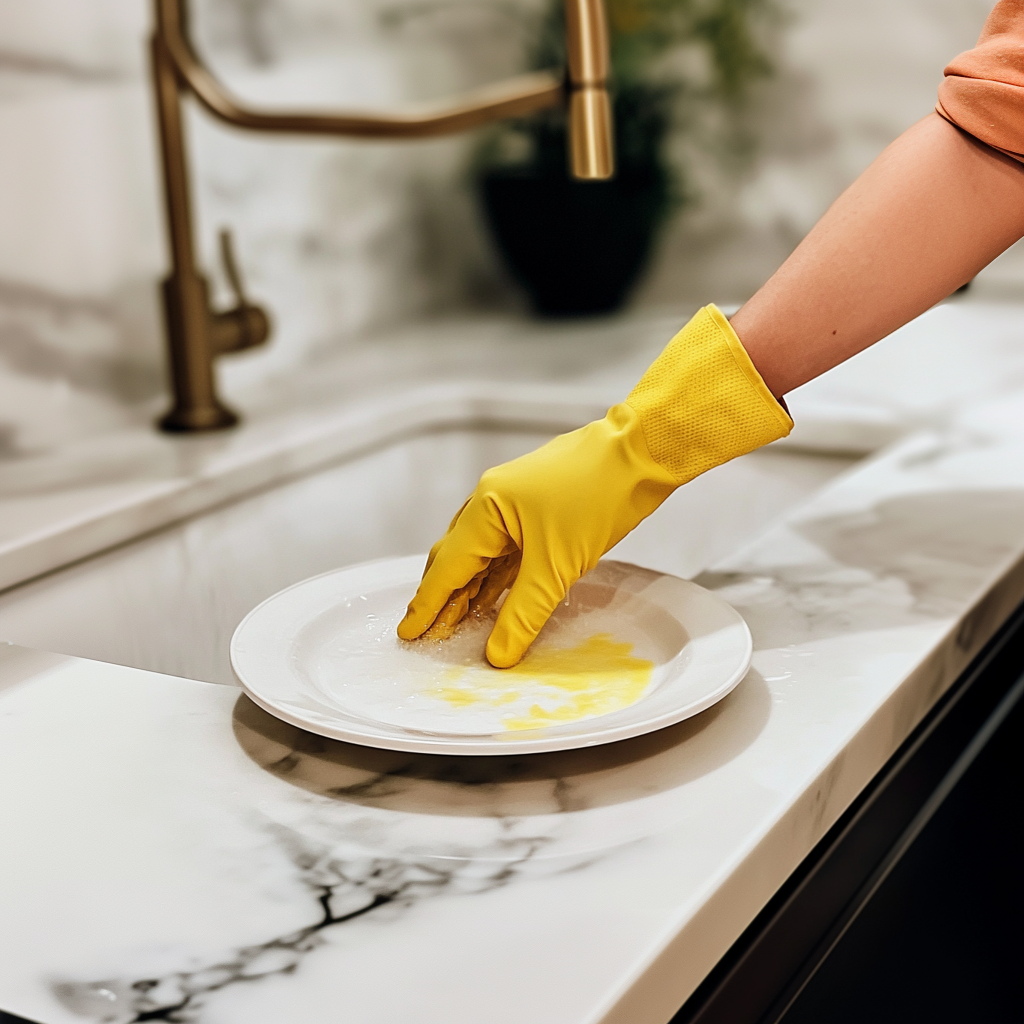At AlHafez Chemical Industries, we understand that old habits, like rinsing plates before loading them into the dishwasher, can be hard to break. However, it’s important to recognize that your dishwasher is more capable than you might think.
Myth: Pre-Rinsing Plates Leads to Cleaner Dishes
Reality: While it may seem more productive to rinse plates before stacking them, this practice is actually less efficient in terms of water conservation. Dishwashers are designed to clean using high temperatures, ensuring that your plates come out hygienically clean without the need for pre-rinsing.
If your dishes are coming out streaky or with food residue, it might be time to check your Rinse Aid levels. Rinse Aid has five powerful actions, including rinsing away food residue and providing film protection.
Another factor to consider is the amount of dishwasher salt in your machine. Too much salt can leave streaks, while too little can lead to spots and watermarks, especially if your water supply is hard. Dishwasher salt is crucial for softening water and boosting your appliance’s cleaning efficiency.
Myth: Skipping Pre-Rinsing Means I Can Load Dishes Directly from the Table
Reality: While it’s not necessary to pre-rinse, you should still scrape off excess food from plates before loading them. This helps prevent large food debris from clogging the pipes. Be especially cautious with sticky foods like pasta and rice, as well as leafy greens, which can lodge in hidden areas of the machine.
If you’re not running the dishwasher immediately, leftover food can cause odors. Remember to clean your dishwasher monthly with a specialized cleaner to remove grease and odors.
Myth: My Parents Always Pre-Rinsed, So Should I
Reality: Dishwashers have evolved significantly since the days of your parents’ appliances. Modern dishwashers are designed to handle heavily soiled items without the need for pre-rinsing. Advanced technology and sensors in today’s machines can detect the level of dirt and adjust the cleaning cycle accordingly. Pre-rinsing may actually hinder this process by making dishes appear cleaner than they are, reducing the effectiveness of the sensors.
The Bottom Line: Stop Pre-Rinsing, Start Saving
Now that you understand why pre-rinsing isn’t necessary, it’s time to put this knowledge into practice. Dishwashers not only save energy and reduce electricity bills, but they are also more water-efficient, benefiting both the environment and your wallet. By continuing to pre-rinse, you’re essentially doing the work that your dishwasher is designed to handle.
Breaking lifelong habits can be tough, but when it comes to saving money and time, change is worth it. Pre-rinsing is a thing of the past. Simply scrape off food, load the dishes, and let our latest dishwasher tablets, equipped with powerful enzymes and eco-friendly oxygen bleach, handle the rest. Even the toughest, stuck-on foods are no match for their cleaning power.

